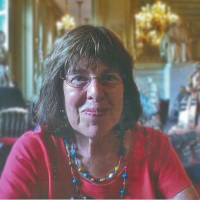An interview between Naomi Zurevinski and Deborah Gorham, author of “Liberty and Love? Dora Black Russell and Marriage,” on early feminists and the challenges of being a woman in academia. To read more about Gorham’s work for her article in the CJH/ACH, click here. Gorham’s article appeared in the Canadian Journal of History/Annales canadiennes d’histoire in 2011, and is available here to read for free for a limited time.
Deborah Gorham has done a lot of work on feminist thinkers, writers, and scholars from the first half of the twentieth century. Although these women might seem far off in a distant past, Gorham thinks their work is still relevant today.
“I think it’s important that we know their history, because it is our history,” she said. “It is our history whether we are women or men, black or white, immigrants or people born in North America.”
One such feminist writer that Gorham has been particularly interested in, is Dora Black Russell (1894-1986), a British author, feminist, and social entrepreneur. Black Russell considered herself to be an exemplar of modernism — she wore black to her 1921 wedding, covering up her nine-month pregnant belly, she was highly educated, and she was forward-thinking in terms of equality between spouses and supporting freedom over the female body.
Many feminist thinkers and writers at the time in Britain often had to choose between a career or having children. Black Russell, by comparison, had a career, four children, and two marriages. Some of her main feminist concerns included birth control for women, the need for female education on their bodies and sexuality, and motherhood.
Although the struggles Black Russell faced might be different from the ones of today, Gorham acknowledges that we still have gender inequality in our society.
“It was difficult being a woman professor years ago. It is easier now, but there remains in the academy, as in the world, a bias against women themselves, and, in the academy, a bias against work on women. We are not in a ‘post-Feminist’ age: not in the world, and not in North America. Women suffer injustices in the family, in the workplace, and in our culture. We must continue our struggle to achieve genuine equality for women,” Gorham said.
Gorham also notes the gendered nature of archival work — something that not all academics may be aware of. The “archive” is a product of the professionalization of historical research in the nineteenth century, most often associated with the German academic Leopold von Ranke (1795-1886), who supported the idea that history was to be “scientific,” meaning rooted in archives. However, the majority of those who supported the turn to archives were male historians.
“Since the mid-twentieth century, some historians — especially if they wanted to work on marginalized groups — have been critical of the 19th century notion of the ‘archive.’ Researchers need to ask themselves how the archival collection they are working on got to the library or archive where it is housed,” Gorham said. “The majority of archival collections are those of men, not women; white people, not people of colour; well-to do people, not poor people. Why is this the case?”
Using a critical eye when examining the past is important, but as we can also see, so too is the way we approach sources and documents of the past.
Gorham’s work, “Liberty and Love? Dora Black Russell and Marriage” is free to read for a limited time. Click here to read the article on CJH Online – http://bit.ly/CJH462_Gorham

Comments on this entry are closed.